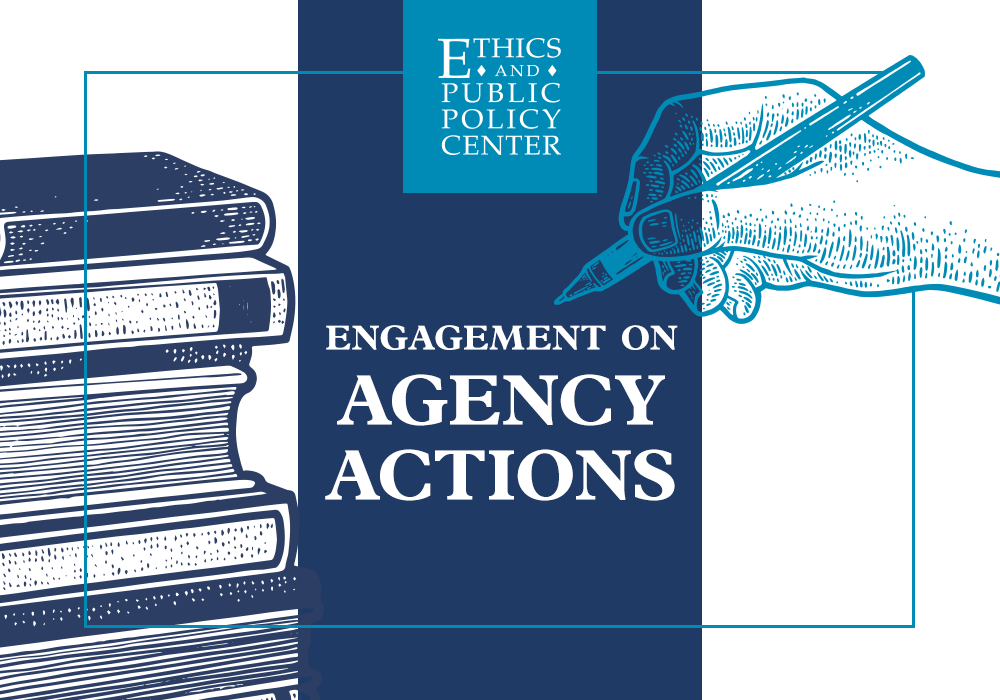
Published April 2, 2024
On Tuesday, April 2, 2024, EPPC scholar Eric Kniffin met with government officials in the Executive Office of the President (EOP) to provide comment on a new oppose a new rule from the U.S. Department of Health and Human Services (HHS) that would clarify what constitutes discrimination against individuals with disabilities under Section 504 of the Rehabilitation Act and, by extension, the Americans with Disabilities Act.
Kniffin applauded HHS for its efforts to better protect the dignity of disabled persons in the medical treatment context, which are consistent with Catholic teaching on the dignity of the human person. He encouraged HHS to build on these principles in its final rule by affirming that disability discrimination protections also apply to infants with disabilities and in the assisted suicide context.
The scholar’s comment also criticized HHS’s claim that “gender dysphoria” counts as a disability under Section 504 despite Congress’ decision to exclude “gender identity disorders not resulting from physical impairments” from the law’s reach. Drawing on analysis by EEPC scholars Ed Whelan and Rachel N. Morrison, Kniffin argues that HHS’s interpretation of Section 504 is arbitrary and capricious and contrary to law:
Following my EPPC colleagues, I too find HHS’s claim that “gender dysphoria” counts as a disability under Section 504 wholly unpersuasive. In addition to the powerful arguments my colleagues have already registered, I offer here a few additional comments and questions for HHS to consider that highlight the flaws in HHS’s claim and the problem with its illegal effort to shoehorn transgender rights into Section 504.
He also took HHS to task for failing to account for the religious liberty problems its new transgender mandate would create. Kniffin wrote:
Given that the stated purpose of this Proposed Rule is to “clarify existing requirements under section 504,” it is unfortunate that HHS offers so little to help covered schools understand what exactly HHS’s claim that gender dysphoria now counts as a disability under Section 504 means for them. It is even more troubling that HHS does not acknowledge that this new interpretation of Section 504 has important religious liberty implications and says nothing about how it will fulfill its obligation to recognize religious liberty rights under the Free Exercise Clause and the Religious Freedom Restoration Act.
Kniffin’s comments to OIRA build on the public comment he submitted to HHS in November 2023 regarding the same proposal.
A written version of Kniffin’s comments, submitted to the government, is available here (PDF).
Eric Kniffin is a fellow at the Ethics and Public Policy Center, where he works on a range of initiatives to protect and strengthen religious liberty as part of EPPC’s HHS Accountability Project.










